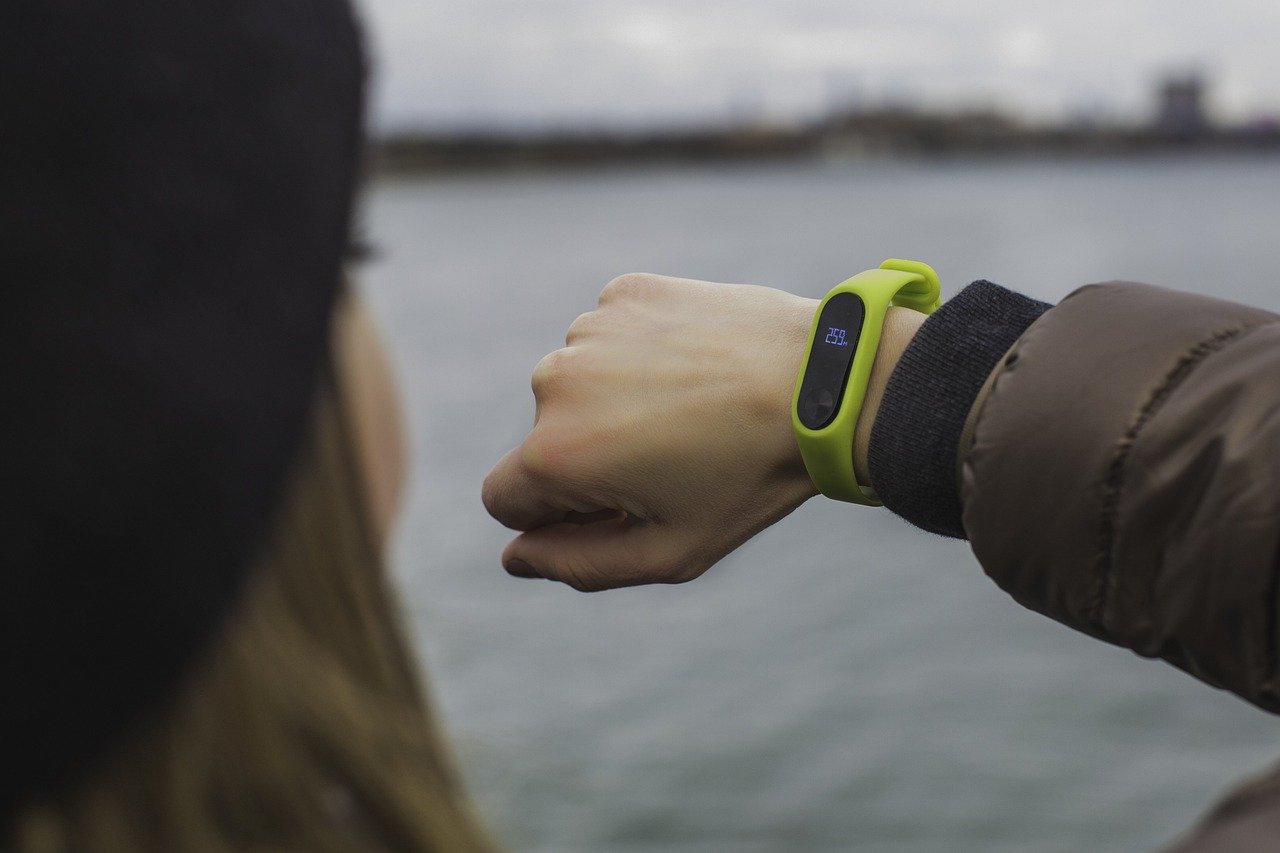In today’s health-conscious society, fitness trackers have emerged as indispensable tools for those seeking to maintain or improve their physical well-being. These devices, worn on the wrist or integrated into clothing and accessories, provide real-time data and insights into an individual’s daily activity levels, heart rate, sleep patterns, and more. The evolution of fitness trackers from simple pedometers to sophisticated health monitoring systems reflects the growing demand for personalized health data and the technological advancements that make this possible.
The Beginnings of Fitness Tracking
The concept of tracking physical activity dates back centuries, with early methods relying on basic counting and logging techniques. However, the modern fitness tracker owes its existence to the development of the pedometer in the 1960s, which counted steps and provided users with a rudimentary measure of their daily activity.
The 21st century saw significant advancements in wearable technology, leading to the creation of the first generation of digital fitness trackers. These early devices were simple, often limited to counting steps and estimating calories burned. However, they laid the groundwork for the more advanced models that would follow.
Technological Advancements
Today’s fitness trackers are marvels of modern technology, incorporating a variety of sensors and algorithms to provide comprehensive health data. Key technological components include:
- Accelerometers and Gyroscopes: These sensors detect motion and orientation, enabling the device to accurately count steps, measure distance, and even recognize specific activities like running or cycling.
- Heart Rate Monitors: Optical sensors measure heart rate by detecting blood flow changes in the wrist, providing valuable data for tracking exercise intensity and overall cardiovascular health.
- GPS: Integrated GPS technology allows for precise tracking of outdoor activities, including running, cycling, and hiking, by mapping routes and calculating distances.
- Sleep Trackers: Advanced algorithms analyze movement and heart rate data to assess sleep quality and duration, helping users understand and improve their sleep patterns.
- Connectivity and Apps: Bluetooth and Wi-Fi connectivity enable fitness trackers to sync with smartphones and other devices, allowing users to access detailed insights and track their progress over time through dedicated apps

Popular Fitness Trackers
Several brands have become synonymous with fitness tracking, offering a range of devices to suit different needs and preferences. Some of the most popular fitness trackers include:
- Fitbit: One of the pioneers in the fitness tracker market, Fitbit offers a variety of devices, from basic models like the Fitbit Inspire to advanced options like the Fitbit Sense, which includes features like ECG monitoring and stress management.
- Garmin: Known for its GPS technology, Garmin produces fitness trackers that cater to athletes and outdoor enthusiasts. The Garmin Forerunner series, for example, is popular among runners and cyclists for its precise tracking and performance metrics.
- Apple Watch: While primarily a smartwatch, the Apple Watch includes robust fitness tracking features, such as heart rate monitoring, ECG, and activity rings that encourage users to meet daily fitness goals.
- Xiaomi Mi Band: A budget-friendly option, the Xiaomi Mi Band offers essential fitness tracking features like step counting, heart rate monitoring, and sleep tracking at an affordable price point.
- Samsung Galaxy Fit: Samsung’s fitness trackers integrate seamlessly with its ecosystem of devices, providing users with comprehensive health data and personalized insights.
Benefits of Fitness Trackers
Fitness trackers offer numerous benefits that contribute to improved health and well-being. Some of the key advantages include:
- Motivation and Accountability: Fitness trackers provide real-time feedback on activity levels, encouraging users to stay active and meet their fitness goals. Many devices also include features like reminders to move and social challenges, fostering a sense of accountability.
- Personalized Insights: By collecting and analyzing data on various aspects of health, fitness trackers offer personalized insights and recommendations. Users can track their progress over time, identify patterns, and make informed decisions about their health and fitness routines.
- Improved Health Outcomes: Regular use of fitness trackers has been linked to improved health outcomes, such as increased physical activity, better sleep quality, and weight loss. By promoting a more active lifestyle and providing tools for self-monitoring, these devices can help prevent and manage chronic conditions like obesity, diabetes, and cardiovascular disease.
- Convenience and Integration: Fitness trackers are designed to be worn throughout the day, making it easy to monitor activity levels and health metrics without disrupting daily routines. Additionally, many devices integrate with other health and fitness apps, allowing users to consolidate their data and gain a more comprehensive view of their overall health.
- Preventive Health Care: Some advanced fitness trackers include features like ECG monitoring, blood oxygen level measurement, and irregular heart rate alerts. These capabilities enable early detection of potential health issues, allowing users to seek medical attention before problems become serious.
Challenges and Considerations
While fitness trackers offer numerous benefits, there are also challenges and considerations to keep in mind:
- Accuracy: Although fitness trackers have become more accurate over time, they are not infallible. Factors such as device placement, user movement, and sensor limitations can affect the accuracy of the data collected. It’s important for users to understand these limitations and use the data as a general guide rather than an absolute measure.
- Privacy and Security: Fitness trackers collect and store sensitive health data, raising concerns about privacy and security. Users should be aware of the data privacy policies of the device manufacturers and take steps to protect their information, such as using strong passwords and regularly updating their devices.
- Cost: While there are budget-friendly options available, high-end fitness trackers can be expensive. Users should consider their specific needs and budget when selecting a device, ensuring they choose one that provides the features and functionality they require without overspending.
- Dependence: Relying too heavily on fitness trackers can sometimes lead to an overemphasis on data and metrics, potentially detracting from the enjoyment of physical activity. It’s important for users to find a balance between using the device as a tool for motivation and maintaining a healthy relationship with exercise.
The Future of Fitness Trackers
The future of fitness trackers is bright, with ongoing advancements in technology promising even more sophisticated and useful features. Some potential developments include:
- Enhanced Sensors: Future fitness trackers may include advanced sensors capable of measuring a wider range of health metrics, such as hydration levels, muscle activity, and stress biomarkers.
- Artificial Intelligence: AI and machine learning algorithms will likely play a greater role in analyzing data and providing personalized recommendations, helping users make more informed decisions about their health and fitness routines.
- Integration with Health Care: Fitness trackers may become more integrated with the healthcare system, allowing for seamless sharing of data with healthcare providers and enabling more proactive and personalized medical care.
- Wearable Ecosystems: As wearable technology continues to evolve, we may see the development of comprehensive wearable ecosystems that include not only fitness trackers but also smart clothing, accessories, and other connected devices, providing users with a holistic view of their health and well-being.
Conclusion
Fitness trackers have come a long way from their early days as simple step counters. Today, they offer a wealth of features and insights that can help individuals lead healthier, more active lives. By providing motivation, personalized data, and convenience, these devices have become valuable tools for anyone looking to improve their fitness and overall health. As technology continues to advance, the potential for even more sophisticated and beneficial fitness trackers is vast, promising an exciting future for this rapidly evolving field.




